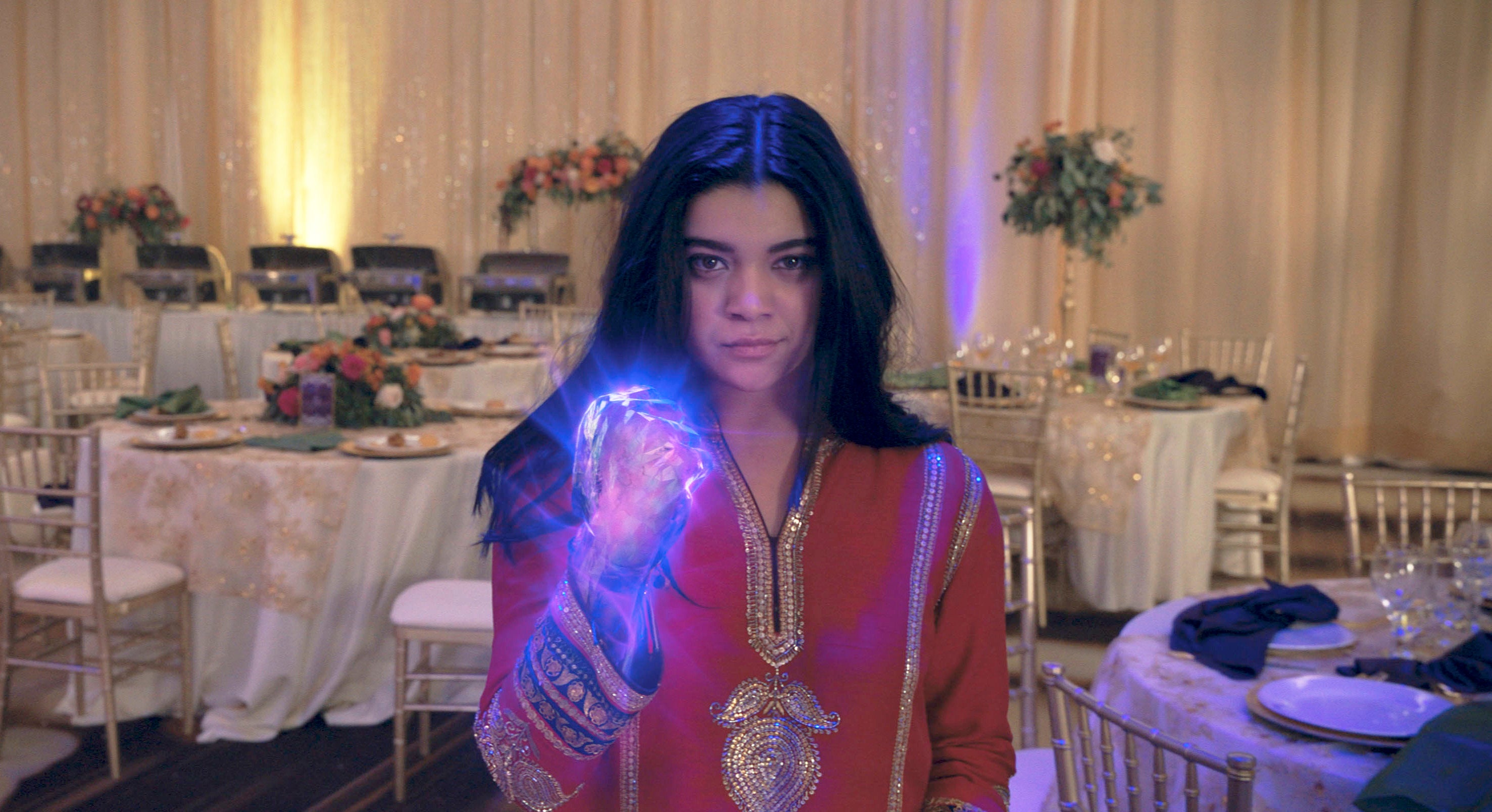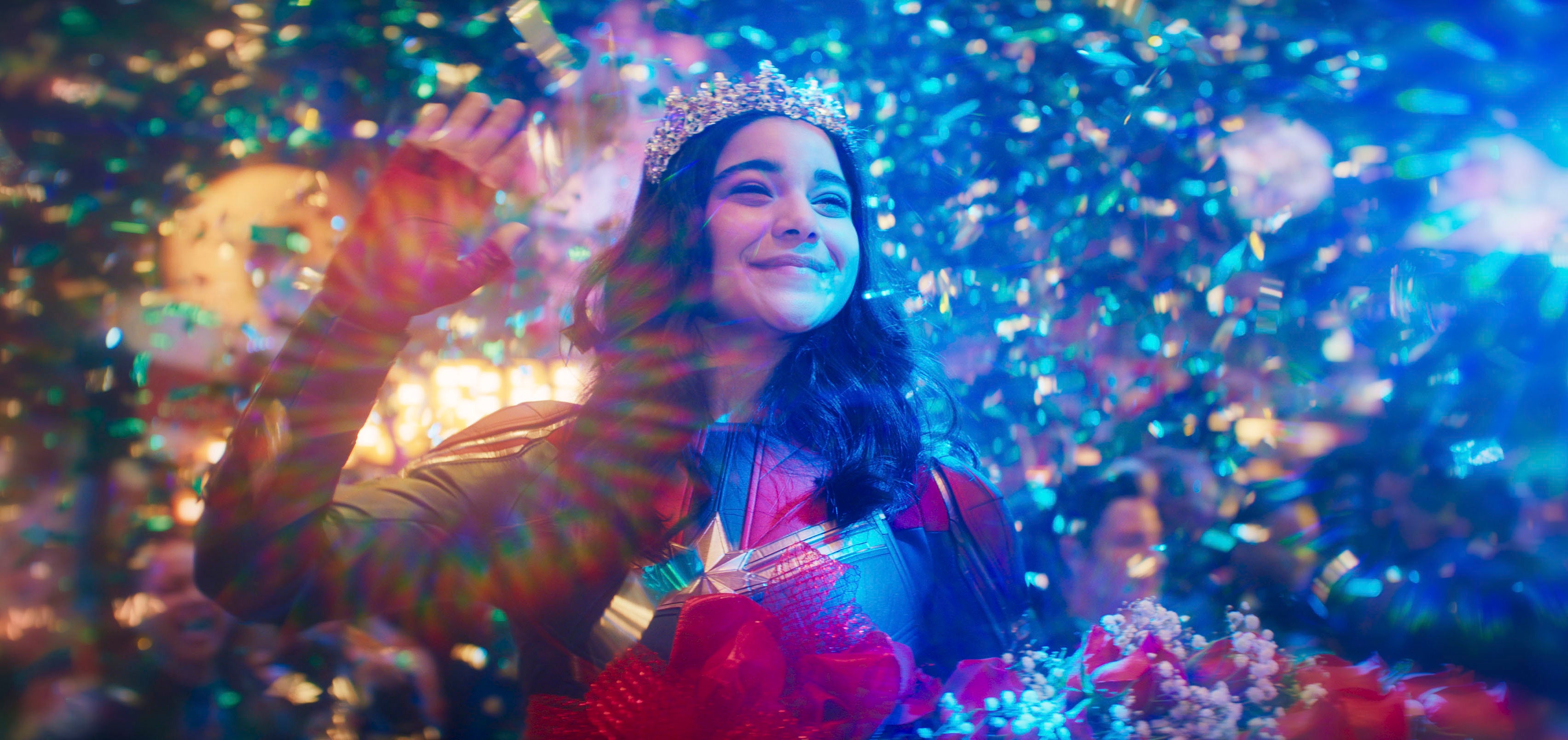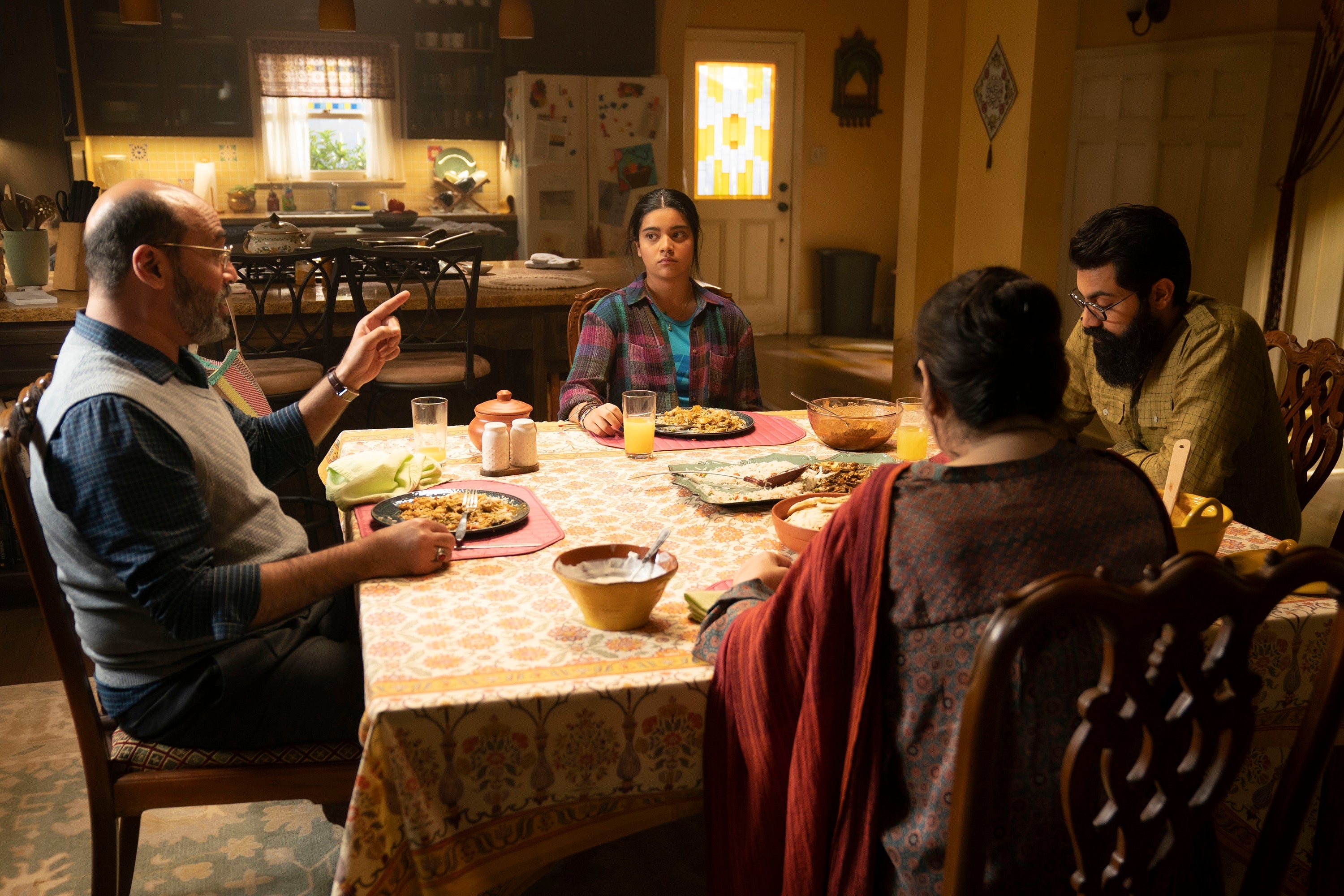Ms Marvel is the Muslim representation I’ve been waiting for
I’m so excited for a new generation of Muslims and south Asians to finally feel seen on screen


Your support helps us to tell the story
From reproductive rights to climate change to Big Tech, The Independent is on the ground when the story is developing. Whether it's investigating the financials of Elon Musk's pro-Trump PAC or producing our latest documentary, 'The A Word', which shines a light on the American women fighting for reproductive rights, we know how important it is to parse out the facts from the messaging.
At such a critical moment in US history, we need reporters on the ground. Your donation allows us to keep sending journalists to speak to both sides of the story.
The Independent is trusted by Americans across the entire political spectrum. And unlike many other quality news outlets, we choose not to lock Americans out of our reporting and analysis with paywalls. We believe quality journalism should be available to everyone, paid for by those who can afford it.
Your support makes all the difference.Growing up, I never saw myself represented on screen. I longed to look like and relate to the stars of my favourite films and TV shows and ultimately ended up feeling lesser in comparison.
Being a woman of colour from a Pakistani Muslim background, depictions of people like me were few and far between, and when we were represented it was often through a stereotypical and one-dimensional lens. From the oppressed housewife or daughter to the violent terrorist, these portrayals were frustrating and didn’t reflect me or the women I knew.
That is why I, and many others, are so excited to watch and finally feel seen in the new Disney Plus show Ms Marvel. The series follows the story of 17-year-old Kamala Khan, a Muslim-Pakistani girl and superhero fan from Jersey City, US, who suddenly finds herself dealing with her own superpowers.
Alongside her new superhuman skills, we see Khan navigate her cultural and religious background, friendships, crushes and other struggles of being a teenage girl.

The series is based on a collection of comics under the same name, which were a critical and commercial hit upon release in 2014, selling more than 500,000 digital copies, and they were one of the first times I felt truly seen within popular culture.
Now the much-loved comics have been adapted for the small screen with Pakistani-American actress Iman Vellani starring as Khan. The series is well under way after much anticipation from Marvel fans, south Asians and Muslims who, like me, have been searching for an accurate representation of themselves within the media.
In the series so far, we’ve seen explorations and references to Pakistani food, Eid celebrations, Islamic prayer, the partition of India and Pakistan, and the hijab, among other odes to culture and faith in between the superhuman elements – and it has been a joy to see.
Overwhelmingly, depictions of Muslims within the media have been absent or negative. A report by the University of Southern California found that Muslims made up just 1.6 per cent of characters in top films, despite making up almost a quarter of the world’s population, and 90 per cent of those characters were linked to violence.
In regards to women, the ratio of male to female Muslim characters across the 200 films analysed in the study was 175 to 1. This shows exactly how ignored we are in the mainstream, and why Ms Marvel is such a breath of fresh air.
But it’s not perfect – nor should we expect it to be.

When I asked her about representations in the show, lead actress Vellani said: “This is one story of one girl of one family and Ms Marvel cannot represent all 2 billion Muslims or all south Asians in the world.
“We wanted to show it as we grew up and we had so many Muslims and south Asians working on the show and they all put so much of their own experiences into Kamala as a character and into the storytelling of it all.”
Ms Marvel may not be relatable for everyone, but it can’t be. However, it’s a great start and I, for one, have resonated with the show so far.
To keep up to speed with all the latest opinions and comment, sign up to our free weekly Voices Dispatches newsletter by clicking here
One scene, in particular, has stuck with me. As Khan chats with a friend called Nakia who wears the hijab, instead of the generic spiel about women who wear hijabs being oppressed or brainwashed, Nakia says: “When I put this on, I feel like me.”
That scene alone will send a message to so many people, Muslim and non-Muslim alike, that the hijab and dressing modestly isn’t a source of oppression for all, but empowerment in being who you are. And it’s one of many powerful messages that can and will educate audiences.
Representation matters. It makes people feel less alone and like they belong. I felt alienated by the media I watched growing up, but I am so excited for a new generation of young Muslims and south Asians who can watch shows like Ms Marvel and finally feel seen.
Join our commenting forum
Join thought-provoking conversations, follow other Independent readers and see their replies
Comments